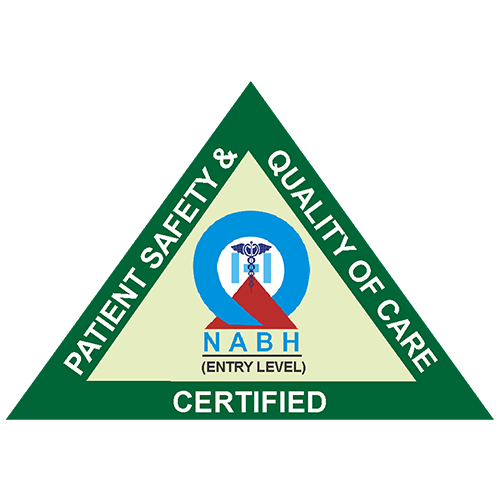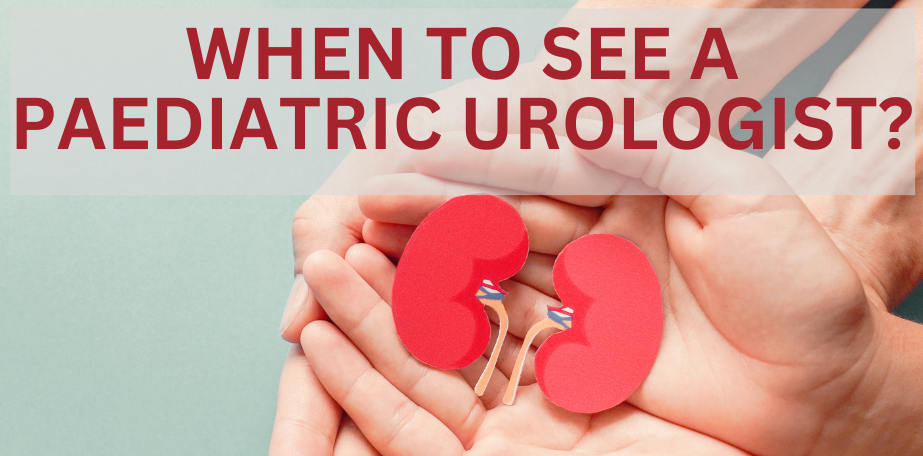Overview:
Paediatric urologists are doctors who specialise in diagnosing and treating urologic conditions in children. A urologic condition is any condition that affects the urinary tract or genital organs, such as the bladder, ureters, kidneys, and urethra. If your child is experiencing symptoms related to their urinary or genital system, it may be time to schedule an appointment with pediatric urologist.
When to See a Paediatric Urologist?
Here are some signs that indicate it is time to see a paediatric urologist:
1) Urinary Tract Infections (UTIs) – Urinary tract infections are a common condition in children, and if left untreated, they can lead to serious kidney damage. If your child is experiencing frequent UTIs, it may be time to see a paediatric urologist. The doctor will perform tests to determine the underlying cause of the UTIs and recommend a treatment plan to prevent future infections.
2) Bedwetting – Bedwetting, also known as nocturnal enuresis, is a common condition in children. However, if your child continues to wet the bed past the age of 6 or 7, it may be a sign of an underlying urologic condition. A paediatric urologist can evaluate your child and determine the cause of the bedwetting. Treatment may include behavioural modification.
3) Urinary Incontinence – Urinary incontinence is the involuntary loss of urine, and it can affect children of all ages. If your child is experiencing urinary incontinence, it may be a sign of an underlying urologic condition. A paediatric urologist can evaluate your child and determine the cause of the incontinence. Treatment may include medication, behavioural modification, or surgery.
4) Abnormal Urination – If your child is experiencing pain or discomfort during urination or if their urine has an abnormal colour or odour, it may be time to see a paediatric urologist. These symptoms could be a sign of an underlying urologic condition, such as a bladder infection, kidney stones, or a urinary tract obstruction. A paediatric urologist can perform tests to determine the underlying cause and recommend an appropriate treatment plan.
5) Undescended Testicles – Undescended testicles occur when one or both testicles fail to descend into the scrotum. This condition is common in premature babies, but it can also occur in full-term infants. If left untreated, undescended testicles can lead to fertility problems and testicular cancer later in life. A paediatric urologist can evaluate your child and recommend the appropriate treatment, which may include surgery.
6) Hypospadias – Hypospadias is a condition in which the urethral opening is not located at the tip of the penis. Instead, it is located on the underside of the penis or in the scrotum. This condition can make it difficult for boys to urinate and can also affect their ability to have sex later in life. A paediatric urologist can evaluate your child and recommend the appropriate treatment, which may include surgery.
7) Kidney Stones – Kidney stones are hard deposits that form in the kidneys and can cause severe pain and discomfort. Children who have a history of kidney stones or who are experiencing symptoms such as pain, blood in the urine, or vomiting may need to see a paediatric urologist. The doctor can perform tests to determine the size and location of the kidney stones and recommend an appropriate treatment plan.
When Does Your Child Need Emergency Medical Attention?
Paediatric urology specialises with conditions affecting the urinary tract and reproductive organs of children. While some conditions can be treated by a paediatrician or urologist, there are certain situations that require immediate attention. Here are some signs that your child may require emergency care:
1) Acute testicular pain – If your child experiences sudden and severe pain in the testicles, particularly if it is accompanied by swelling, redness, or a change in testicular position, seek emergency care immediately. This could be a sign of testicular torsion, a condition that requires prompt treatment to prevent permanent damage to the testicles.
2) Blood in urine – If your child has blood in their urine, this could be a sign of a urinary tract infection or a more serious condition like kidney stones or bladder cancer. Seek emergency care if your child experiences severe pain or is unable to urinate.
3) Abdominal pain – If your child experiences severe abdominal pain, particularly if it is accompanied by vomiting or difficulty urinating, seek emergency care. This could be a sign of a bladder or kidney infection, or a more serious condition like a tumour.
4) Inability to urinate – If your child is unable to urinate, this could be a sign of a blockage in the urinary tract. Seek emergency care if your child experiences pain, swelling, or discomfort in the lower abdomen.
5) Severe constipation – If your child is unable to have a bowel movement for several days, this could be a sign of a blockage in the intestines. Seek emergency care if your child experiences severe abdominal pain or vomiting.
6) Testicular hernia – If your child develops a hernia in the groyne area that can’t be pushed back inside, seek emergency care. This could be a sign of a serious condition that requires surgical intervention.
Complications of Ignoring the Symptoms
Ignoring symptoms in children can lead to serious complications, and it is essential for parents to be vigilant and proactive when it comes to their child’s health. Delaying a doctor’s appointment can lead to unimaginable complications, such as issues with learning to use toilets, abnormal curvature of the penis, kidney failure or scarring, hypertension, and even the possibility of a girl developing pyelonephritis during her pregnancy when she grows up.
Procedures Carried Out by Paediatric Urologists
Fortunately, paediatric urologists are available to diagnose and treat these conditions. These specialists can perform surgeries to reconstruct genital abnormalities and the urinary tract, diagnose and treat kidney stone disease, administer tumours and issues related to the bladder, testis, and kidney, and evaluate urological tract conditions and diagnose them before birth.
Before You Speak With a Paediatric Urologist, What Should You Do?
Before consulting a paediatric urologist, parents should make a note of the signs and symptoms their child is showing, recent medical reports, family medical history, and any medication their child is taking. During the appointment, the specialist will conduct a physical exam to thoroughly evaluate the child’s condition and provide informed care. They will examine the problematic area, press on the back and belly, and examine the genital area and spine.
What Does a Paediatric Urologist Do at the Time of Appointment?
Paediatric urologists will provide information regarding the diagnosis and answer any questions parents may have. If surgery is recommended, they will discuss the need for the surgery, associated risks, possible alternatives, and what to expect from the procedure. By the end of the appointment, parents will have an idea of what to do next.
Conclusion
In conclusion, parents must be vigilant and take any worrying symptoms in their children seriously. An early and proper diagnosis gives the child the best chance for comprehensive treatment, and consulting a paediatric urologist can help prevent serious complications in the long run.





Maintaining kidney and bladder health is crucial for overall well-being. Adequate hydration, balanced diet, and regular exercise play key roles in supporting these vital organs. Incorporating foods rich in antioxidants and nutrients, such as berries, leafy greens, and lean proteins, can promote kidney function and prevent urinary tract infections. Avoiding excessive salt, sugar, and caffeine intake also helps protect against kidney stones and bladder irritation. Additionally, practicing good hygiene, avoiding smoking, and managing stress contribute to a healthy urinary system. Prioritizing kidney and bladder care enhances quality of life and reduces the risk of urinary tract issues.
kidney and bladder care